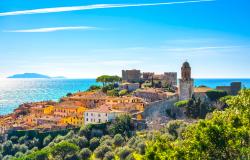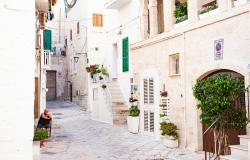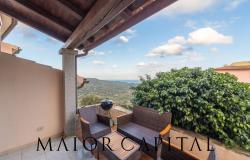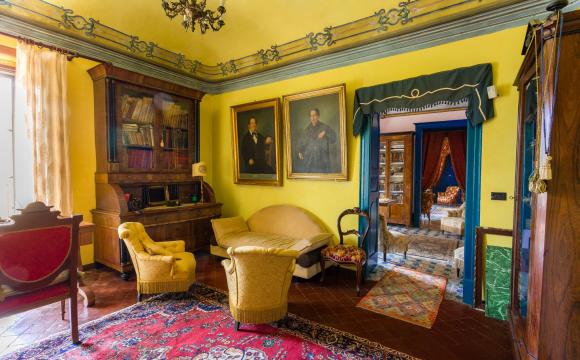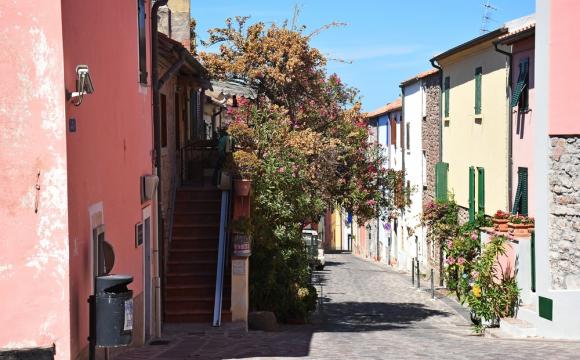Letting your property is a way of recovering some of the cost of buying and restoring your house, but to be successful you need to ensure that your property is geared to the relatively sophisticated needs of Italian renters. Do not assume that you can patch up an old barn on your property, stick in a couple of bedrooms and a bathroom with an electric shower, and watch the rental income flow in.
People are extremely fussy about where they spend their precious Italian fortnight and they will not accept substandard accommodation under the guise of it being a ‘rustic’ house.
The main clientele in the Italian market are middle-class British families, well-heeled Americans, Germans and Scandinavians, and they have high expectations. The more facilities you offer, therefore, the more you will be able to charge and the greater number of clients you will attract.
Properties that have facilities such as ISDN lines, Sky TV, a cook and maid service, heated pool etc, can command higher prices in what is a competitive and crowded market.
Information pack
You should prepare an information pack on the house and the area – in particular give concise instructions on how to reach the house and include maps and diagrams.
Prepare a list of nearby restaurants, supermarkets, banks, pharmacies, worthwhile sightseeing trips and other local tourist attractions such as water theme parks for children. Also prepare a list of emergency numbers such as local hospitals, dentists and visiting doctors.
Create a website - advertising
 If you are planning to try and rent your property yourself it will be worthwhile to create a website so that potential clients can take a virtual tour to see if this is where they want to spend their holidays.
If you are planning to try and rent your property yourself it will be worthwhile to create a website so that potential clients can take a virtual tour to see if this is where they want to spend their holidays.
You can also advertise you property on another website. That will be less expensive and you won't need to update the account by yourself. See an example here. Another tip: submit the advert in the early new year when people are dreaming of sunshine and lazy summer days.
If you work for a large company, a hospital or local authority, or have friends who do, put up a notice in the canteen or rest room. Use other informal advertising means such as a postcard in your local church or sports club.
Rental contract
 Look at the contracts offered by professional letting agencies and use them as a guide for your own. If you want to specify conditions such as no smoking or no pets, make that clear in the contract. you should ask for 50 percent of the cost as an advance deposit and ensure that the remaining 50 percent is paid a maximum two weeks before arrival.
Look at the contracts offered by professional letting agencies and use them as a guide for your own. If you want to specify conditions such as no smoking or no pets, make that clear in the contract. you should ask for 50 percent of the cost as an advance deposit and ensure that the remaining 50 percent is paid a maximum two weeks before arrival.
Secure a deposit against damages that may be incurred and do not repay it until you are completely happy that all the costs have been cleared. For example, clients may say they will use their own mobile phones, but you will have to check your telephone bill and show them the itemized calls and relevant dates if it turns out they have been using the main line as well.
Costs
You will not make your fortune renting out your Italian property. A yearly return of about 7 percent is all that you should expect, but renting will cover the costs and upkeep of the property. you must factor in the price of cleaning and maintenance (maid, gardener and pool person), household insurance, advertising and stationery costs as well as wear and tear and other incidental damage.
Local help
It is important to have someone locally who can sort out problems if you are not in Italy. A maid or gardener should have a list of workmen when things go wrong, as they do all the time – no hot water, the washing machine doesn’t spin, the pozzo has gone dry etc. Someone has to be able to deal with these events and call you if things are serious.
When renters arrive there should be some basic supplies – bread, water, milk, orange juice and wine in the fridge – to welcome them. Approach the letting of your property as a business. Remember that as owners you will have to be on call at all times – either in person or at the end of a telephone.
Income from letting your property should be declared, whether you are living in Italy or your home country. An accountant will advise you.
Article reproduced from The Complete Guide to Buying Property in Italy by Barbara McMahon. For more information, please visit the store below.

